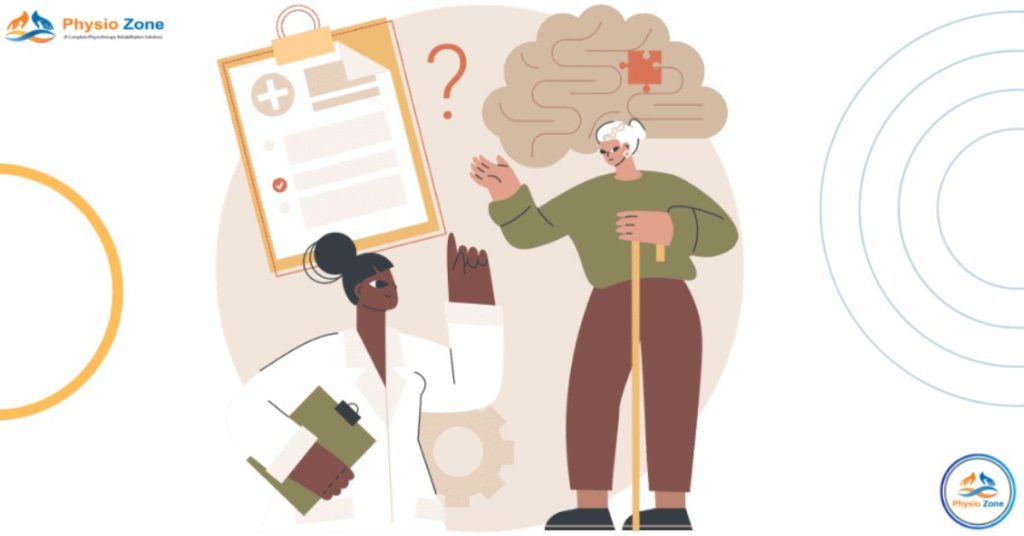Neurological physiotherapy is an integrated treatment helpful for the patients with
neurological disabilities. This treatment is to optimize the patient’s cognitive, physical, emotional, and social functions for highest independence.
Range of neurological conditions include traumatic brain injury, stroke, multiple sclerosis, spinal cord injury, Parkinson’s disease, motor neuron disease, cerebral palsy, post-polio syndrome, neuropathies, Gullianbarre syndrome,
In what conditions is neuro physiotherapy used?
Any neurological situation which affects movement and physical ability can be treated using neurological physiotherapy. Some common conditions are: useful include:
- Stroke
- Traumatic head Injury or brain Injury
- Injury of Spinal cord
- Multiple sclerosis (MS)
- Disease due to Parkinson’s
- Bell’s palsy
The disease may range from paralysis, motor deficits, tremor and spasm to ataxia or lack of sensation. This is due to damage to the central nervous system which can lead to the breakdown of afferent and efferent pathways which carries nerve signals to and from muscles and organs.
What does neuro physiotherapy consist of?
The purpose of neuro physiotherapy is to cure and rehabilitate physical damages caused by neurological conditions as mentioned earlier. It is designed to the specific needs of affected individuals. As for example, does the patient require big improvements such as learning to walk again? This will be examined and then determined by trained neurological physiotherapists.
A phenomenon named neuroplasticity where the brain is able to both form and lose new connections, Neuro Physiotherapy helps the brain to make new synaptic connections. In effect, it makes the brain to learn or relearn abilities or tasks.
What is Neurological Physiotherapy?
Neuro Physiotherapy can either be directed in a one-on-one manner, as when the patient requires to re-learn how to walk, sit or stand if the damage is severe.
Neuro Physiotherapy does not end at simple passive exercises or designed exercises to rebuild strength and coordination. Depending on the limit of motor dysfunction, splints or limb positioning may be arranged to aid joint recovery. In certain situations, mobility aids may be required such as specialized wheelchairs or a walking frame.
In all situations of neuro physiotherapy, physical exercises done by trained neurological physiotherapists are to be repeated both in the at home and clinic on a regular basis to confirm motor function and muscle tone does not deteriorate.
Rehabilitation will be dependent upon the extent of the brain injury or damage as well as how quickly neuro physiotherapy begins. Furthermore, the behavior or willingness of the affected patient is also important to success.
Challenges in Bangladesh for Neurological Physiotherapy
A Prothom Alo roundtable reported that the country’s healthcare sector significantly lacks knowledge and facilities for this treatment without medicine, despite rising demand for physiotherapy due to an increase in pain-related disorders and impairment in society.
Speaking there, Social Welfare Minister Rashed Khan Menon voiced his concern that the majority of government-run hospitals lack the physiotherapists and necessary equipment to handle the demand.
At the conference on “Importance and Crisis of Physiotherapy in the Health Sector and Way Forward,” stakeholders stated that many Bangladeshi patients who want physiotherapy need to travel abroad.
Numerous individuals are allegedly taken advantage of because home physiotherapy care is so limited. There is no regulation, according to doctors and practitioners of physiotherapy, to address the issue and support the nation’s many untrained service providers.
Compared to facilities provided in other nations, there is no separate institution either for physiotherapy education, the experts said.
The government has already establish a regulatory council, but until now it’s not functioning. Rashed Khan Menon stated, “I believe all hospitals should have physiotherapists to suit our national demand,” and he encouraged the creation of a separate institution for physiotherapy education.

